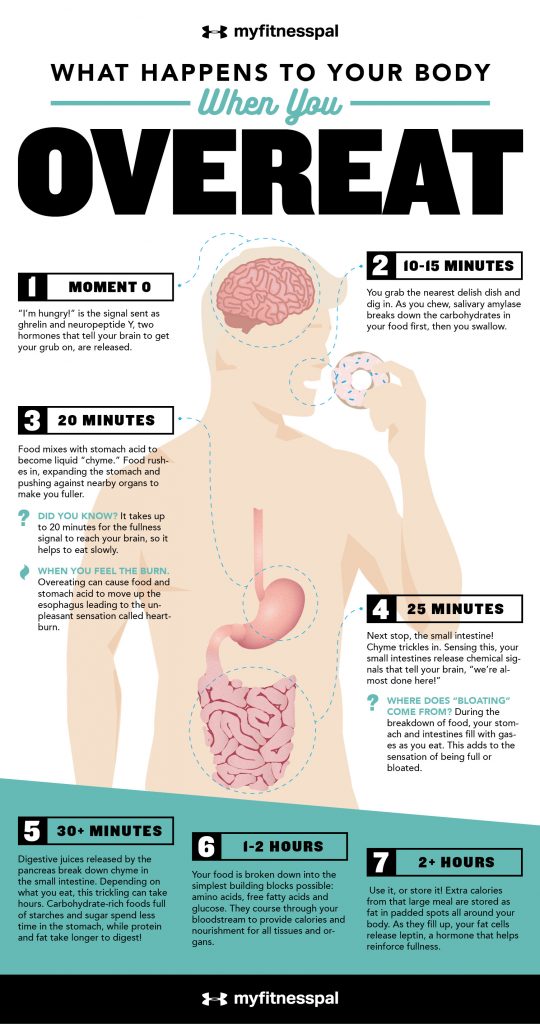Feeling Extra Full? Find Out What Happens to Your Body When You Overeat
January 11, 2017
by Mankato Clinic

What Happens to Your Body When You Overeat
- Moment 0 – “I’m hungry!” is the signal sent as ghrelin and neuropeptide. Y, two hormones that tell your brain to get your grub on, are released.
- 10-15 Minutes: You grab the nearest delish dish and dig in. As you chew, salivary amylase breaks down the carbohydrates in your food first, then you swallow.
- 20 Minutes: Food mixes with stomach acid to become liquid “chyme.” Food rushes in, expanding the stomach and pushing against nearby organs to make you fuller.
Did you know? It takes up to 20 minutes for the fullness signal to reach your brain, so it helps to eat slowly.
When you feel the burn. Overeating can cause food and stomach acid to move up the esophags leading to the unpleasant sensation called heartburn.
4. 25 Minutes: Next stop the small intestine! Chyme trickles in. Sensing this, your small intestine release chemical signals that tell your brain, “we’re almost done here!”
Where does “bloating” come from? During the breakdown of food, your stomach and intestines fill with gases as you eat. This adds to the sensation of being full or bloated
5. 30+ Minutes: Digestive juices released by the pancreas break down chyme in the small intestine. Depending on what you eat, this trickling can take hours. Carbohydrate-rich foods full of starches and sugar spend less time in the stomach, while protein and fat take longer to digest!
6. 1-2 Hours: Your food is broken down into the simplest building blocks possible: amino acids, free fatty acids and glucose. They course through your bloodstrream to provide calories and nourishment for all tissues and organs.
7. 2+ Hours: Use it, or store it! Extra calories from that large meal are stred as fat in padded spots all arond your body. As they fill up, your fat cells release leptin, a hormone that helps reinforce fullness.